You wake up in the morning, sleepily brushing your teeth and see tiny little black spots on your nose, chin and maybe even some parts of your body – let us introduce you to our most stubborn of friends, the reliable (and persistent) blackhead.
What are blackheads?
Blackheads are a feature of mild acne, formed when a hair follicle in the skin becomes clogged or plugged. A bump is formed when dead skin cells and excess oils build up in the follicle’s opening – the pore.
So, now we know what they are, how do we get rid of them?
I spoke to Dr Kay, a family GP and cosmetic doctor and skincare enthusiast. We discussed the best ways to get rid of blackheads and how to keep them at bay.

What type of products should I be looking out for?
As blackheads are caused by a build-up of skin cells and oils, Dr Kay says to use products that are non-comedogenic (a fancy word for products that don’t cause blocked pores) and oil-free.
“These products are formulated specifically in such a way that they’re not likely to cause pore blockages,” says Dr Kay.
Chemical exfoliants
Chemical exfoliants might sound pretty hardcore but actually they can be very gentle. There are many compounds and formulas created to help your skin, and chemical exfoliants are the acids that get rid of dead skin cells.
“Chemical exfoliants are amazing stuff and work really well with blackheads,” says Dr Kay. Look out for products containing salicylic acid, a form of beta hydroxy acids (BHA) or glycolic acid, an alpha hydroxy acid (AHA).
Tropic’s Fruit Peel Resurfacing Serum contains a variety of alpha, beta and polyhydroxy acids to help shed dead skin cells.

Retinol
“Retinol is the jack of all trades in skincare,” says Dr Kay. “It can have so many benefits.”
The doctor says retinol (or its natural twin, bio-retinol) helps to increase your skin’s rate of getting rid of dead skin cells, revealing newer unblemished skin underneath. It also works well when combined with other skincare ingredients to speed up improvements in your skin health, but the effects can sometimes be harsh or even harmful to sensitive skin. That’s why we work with bakuchiol, a bio-retinol/retinol alternative that’s slightly gentler on skin and can be used for those whose skin has a slightly more sensitive soul.
Moisturising
“Moisturiser is essential,” says Dr Kay. “Regardless of what type of skin you have, it should be one of the last steps in your skincare routine to protect your skin’s moisture barrier.”
The doctor added that if you’re using treatments that strip the skin of its oil and moisture, your skin will end up compensating by producing even more oil, leading to your pores getting blocked. Moisturising will maintain the oil and moisture levels in your skin to prevent this from happening. Feast your eyes on our favourite skin-friendly moisturiser here.

What are the most important things to remember?
Dr Kay stresses the importance of building a solid skincare regime that promotes gentle chemical exfoliation and protects the skin’s moisture levels.
She says even with the best regimen, you can still have the occasional flare-up of blackheads. “The key is not to freak out and start trying quick-fixes or tampering too much with the skin,” says Dr Kay. “This is an ongoing process. Rome wasn’t built in a day.”

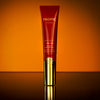 Skincare
Skincare
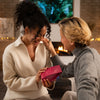 Gifts
Gifts

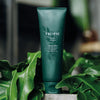 Men's
Men's
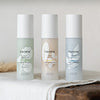 Bestsellers
Bestsellers
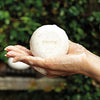 Body Care
Body Care
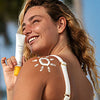 Sun Care
Sun Care
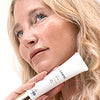 Makeup
Makeup
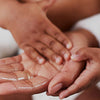 Mama & Baby
Mama & Baby
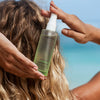 Hair Care
Hair Care














